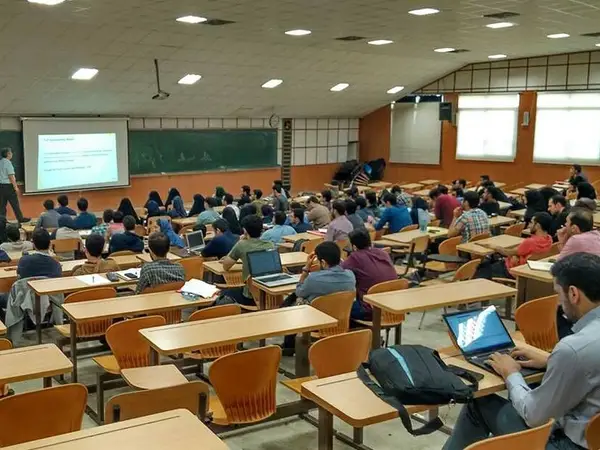Purging dissident professors in Iran, which commenced shortly after the protests of the Woman, Life, Freedom movement last September, has intensified in recent days.
News of the ongoing purge angered the public after Professor Ali Sharifi-Zarchi announced on X on August 26 that Sharif University of Technology had expelled him.
Sharifi-Zarchi, a member of the bioinformatics and AI Faculty of the university's computer engineering department, supported dissident students during the months-long nationwide protests sparked by Mahsa Amini's death in custody on September 16 last year.
In the past few days, the university has also invited three hardliner figures, including Amir-Hossein Sabeti, a television presenter, to teach Islamic subjects at the university.
Observers say the dismissal of dissident professors may be a preemptive move to reduce the chances of campus protests on the first anniversary of Amini's death.
Iran’s former nuclear chief Ali-Akbar Salehi, who is also the deputy head of the Academy of Sciences of the Islamic Republic of Iran, spoke to the reformist Jamaran news website about Sharifi-Zarchi's expulsion on Monday. He said the academic level of universities will deteriorate due to the "mass injection" of unqualified academicians replacing the expelled professors. "It can no longer be called a university!" he exclaimed.
Salehi added that he had tried to contact the university's chancellor and had sent messages to him, stating that decisions of such sensitivity should be made with tolerance and careful consideration, even if Sharifi-Zarchi had not fully abided by some of the university's rules and regulations, as they claim.
In the past couple of days, at least ten university professors from Sharif, Allameh Tabatabai, and Tehran universities were either sacked or suspended. In April, nine professors from Tehran Azad University, who had openly criticized the regime and its policies, were similarly purged through forced early retirement.
According to the reformist Etemad newspaper, from 2006 to the end of August 2023, 157 tenured professors have been dismissed, forced into retirement, or banned from teaching due to their critical and dissenting views, as part of a broader initiative to cleanse universities of critics of the hardline establishment.
During the presidency of Mahmoud Ahmadinejad (2005-2013), who was closely aligned with hardliners, the regime also attempted to employ professors who were ideologically aligned with the hardline and religious establishment.
The intensification of the purge appears to have caused delays in the start of the academic term in some universities, with several institutions potentially resorting to online lectures.
Ameneh Aali, a psychology professor at Allameh Tabatabai University, who is among those sacked, told the Didban-e Iran news website on Saturday that she was informed of her expulsion over the phone and was not provided a reason for the termination of her contract with the university.
She asserted that she was dismissed because she had signed statements supporting protesting students last year, participated in their sit-ins, and objected to the suspension of students.
While the Ministry of Higher Education has not commented on the issue, the Interior Ministry released a statement on Monday describing criticism of the expulsion of academics as "media propaganda" and asserting that the Higher Education Ministry had taken "revolutionary action."
The Interior Ministry's statement also accused the sacked professors, who had opposed the crackdown on students and supported those who were arrested or suspended, of "political immorality and media show-off," and of "defiling" the academic arena with their "factional and even anti-national views."
In a statement on Sunday, the National Union of Iranian University Professors criticized the "profuse meddling" of security bodies in academic affairs and warned about the "gradual decline" of universities.
